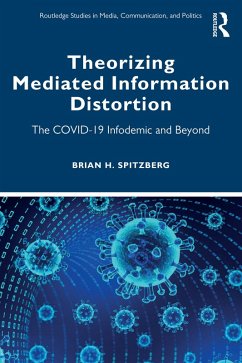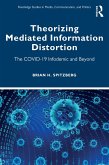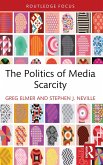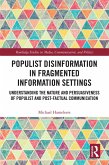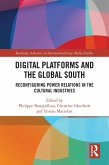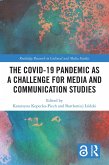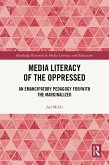Positing that the interrelated processes of misinformation, disinformation, fake news and conspiracy theories are related forms of distortion of information through media (DIM) and can only be understood through a multilevel theoretical model that incorporates message-based, individual difference, social network-based, societal and geotechnical factors, Brian H. Spitzberg develops an integrative, well-argued, and well-evidenced framework within which these issues can and should be addressed.
This book offers a model for further research across such disciplines as communication, journalism/media studies, political science, sociology, cognitive psychology, social psychology, evolutionary psychology, public health, big data analytics, social network analytics, computational linguistics and geographic information sciences, and will interest researchers and students in those areas.
Dieser Download kann aus rechtlichen Gründen nur mit Rechnungsadresse in A, B, BG, CY, CZ, D, DK, EW, E, FIN, F, GR, HR, H, IRL, I, LT, L, LR, M, NL, PL, P, R, S, SLO, SK ausgeliefert werden.
Joseph B. Walther, Ph.D., Distinguished Professor of Communication, Bertelsen Presidential Chair in Technology and Society, University of California, Santa Barbara
Theorizing Mediated Information Distortion is an essential volume for anyone seeking to understand the far-reaching effects of misinformation on public health and society. Spitzberg's broader theory of meme diffusion and distortion of information is an invaluable resource in the fight against misinformation and a testament to the importance of evidence-based decision-making in the face of uncertainty.
Scott Caplan, Professor, Department of Communication, University of Delaware, Author of The changing face of problematic Internet use
A thorough and timely multi-level analysis of how and why information becomes distorted in media-and what can be done to stem the problem. From Covid-19 misinformation to conspiracy theories, Spitzberg addresses key factors in the germination and dissemination of misinformation, including cognitive biases, social network structures, meme diffusion, social media algorithms, pandemic fears, trust in authority, and much more.
Benjamin Radford, MPH, M.Ed., Deputy Editor, Skeptical Inquirer science magazine

